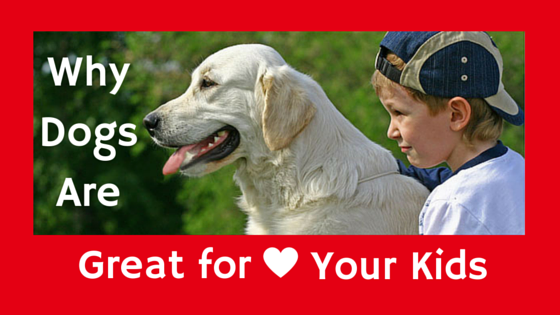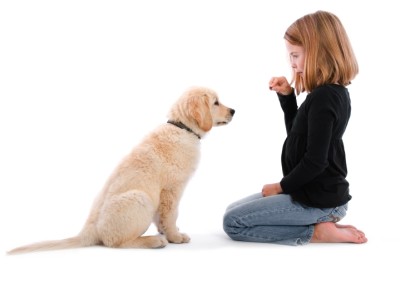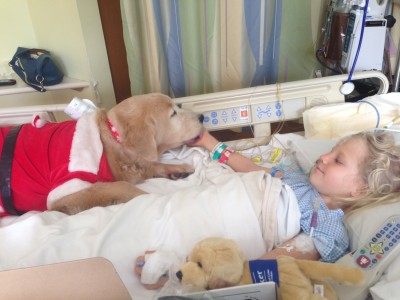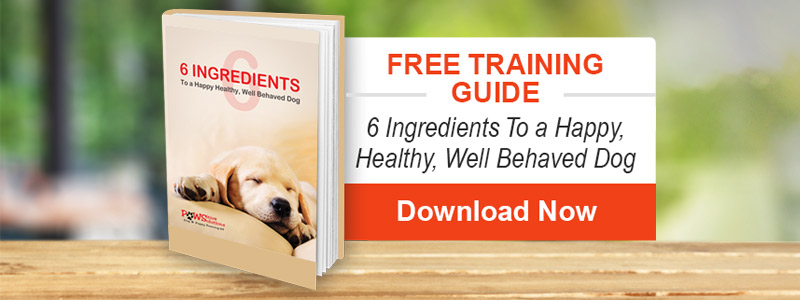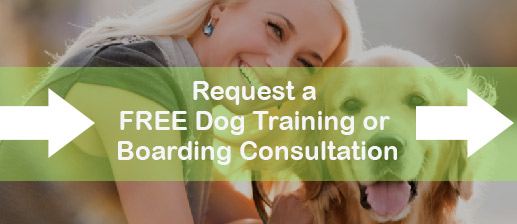Why Dogs are Great for Your Kids!
March 31st, 2022 by Marlene Ring
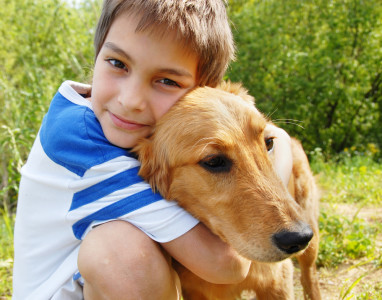 Having Dogs around children is beneficial in so many ways
Having Dogs around children is beneficial in so many ways
Building stronger family bonds, raising healthier babies, teaching children to take responsibility, increasing social skills and having a better understanding of care giving are just a few examples.
I have been to several homes where the children as well as the parents are learning about training their dogs. Many children are responsible, dedicated and ready to learn.
It has been known for a while that bringing therapy animals (especially dogs) into certain facilities, such as schools and hospitals, can be extremely helpful.
Developmentally challenged kids learn more quickly and those in hospitals tend to recover faster when a therapy dog is utilized.
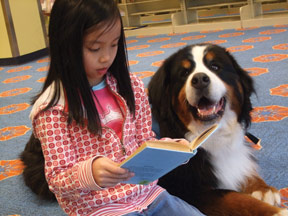 Studies have found that when children are asked to read in front of an animal, they have much lower stress levels than when asked to read to a peer or an adult. Not being judged by their furry friends seems to help them achieve more. Many libraries have reading programs like this. You can check the Boerne Library here http://www.ci.boerne.tx.us/209/Children
Studies have found that when children are asked to read in front of an animal, they have much lower stress levels than when asked to read to a peer or an adult. Not being judged by their furry friends seems to help them achieve more. Many libraries have reading programs like this. You can check the Boerne Library here http://www.ci.boerne.tx.us/209/Children
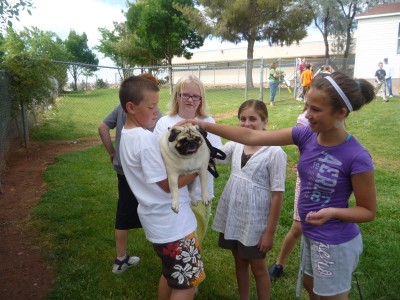 Having a pet can make it easier for children to be more sociable. It gives the child something to talk about and a shared interest with other kids. I have seen otherwise tongue tied children chatter animatedly about the amazing abilities of their canine buddy.
Having a pet can make it easier for children to be more sociable. It gives the child something to talk about and a shared interest with other kids. I have seen otherwise tongue tied children chatter animatedly about the amazing abilities of their canine buddy.
Dog are often a great source of comfort. When a group of 5 year old pet owners were asked what they did when they felt sad, angry, afraid, or had a secret to share, more than 40 percent said they turn to their pets.
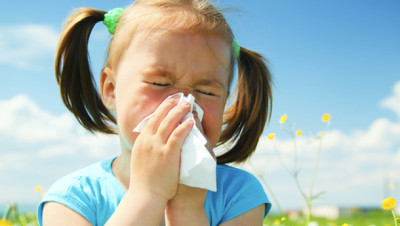 According to a study by Dennis Ownby, MD, a pediatrician and head of the allergy and immunology department of the Medical College of Georgia, having pets actually decreases a child’s risk of developing certain allergies.
According to a study by Dennis Ownby, MD, a pediatrician and head of the allergy and immunology department of the Medical College of Georgia, having pets actually decreases a child’s risk of developing certain allergies.
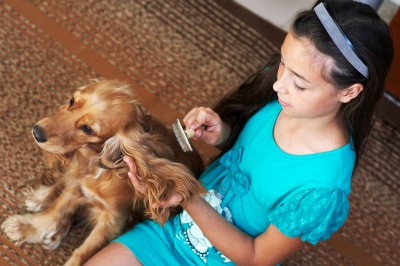 When children are given a chance to be caregivers, many will live up to the challenge. It can be exciting for them to take part in the care of their animals, from feeding, to walking, brushing, training, petting and playing. With all the benefits that a child can get from having a relationship with a dog, it is no wonder why so many kids are inclined to interact with dogs.
When children are given a chance to be caregivers, many will live up to the challenge. It can be exciting for them to take part in the care of their animals, from feeding, to walking, brushing, training, petting and playing. With all the benefits that a child can get from having a relationship with a dog, it is no wonder why so many kids are inclined to interact with dogs.
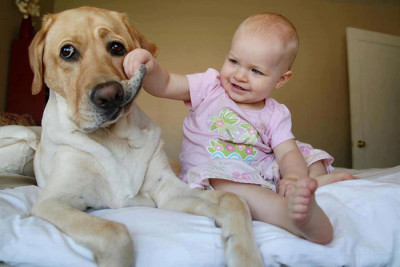 All of these activities can be quite fulfilling but it is also important to keep in mind that some children might be a bit too young to take part in all of them. While some dogs can easily handle any sized humans, some may be fearful of toddlers as their body language is very hard for a dog to read. It is important to keep in mind that both the children and pups need a bit of structure for this union to go smoothly.
All of these activities can be quite fulfilling but it is also important to keep in mind that some children might be a bit too young to take part in all of them. While some dogs can easily handle any sized humans, some may be fearful of toddlers as their body language is very hard for a dog to read. It is important to keep in mind that both the children and pups need a bit of structure for this union to go smoothly.
Here are a few thing to tell the kids in your life about dogs. And as always, if you have any questions give me a call!
| DO | REMEMBER |
| Be gentle | Never hug, slap, pull, squash, ride or poke any dog |
| Use a normal calm voice | Don’t scream around any dog |
| Pet the dog’s body | Don’t pet the head or feet |
| Approach dogs from the side | Avoid approaching the dog’s face |
| Respect your dog’s space | Never put your face in the dog’s head or blow in their face |
| Feed the dog at a routine meal time | Don’t bother or touch a dog while eating |
| Offer treats when supervised by an adult | Don’t take treats away |
| Only give toys when supervised by an adult | Don’t take toys away or tease the dog with them |
| Let sleeping dogs lie | Don’t wake up a dog that is resting |
| Play games that your dog likes | Don’t force your dog to play if they don’t want to |
| Take your dog on a walk with an adult present | Resist walking a dog that is too strong for you. |
| Teach your dog to sit for petting and feeding | Don’t let your dog jump on you or your friends |
| Brush your dog regularly | Don’t give a haircut or style your dog |
